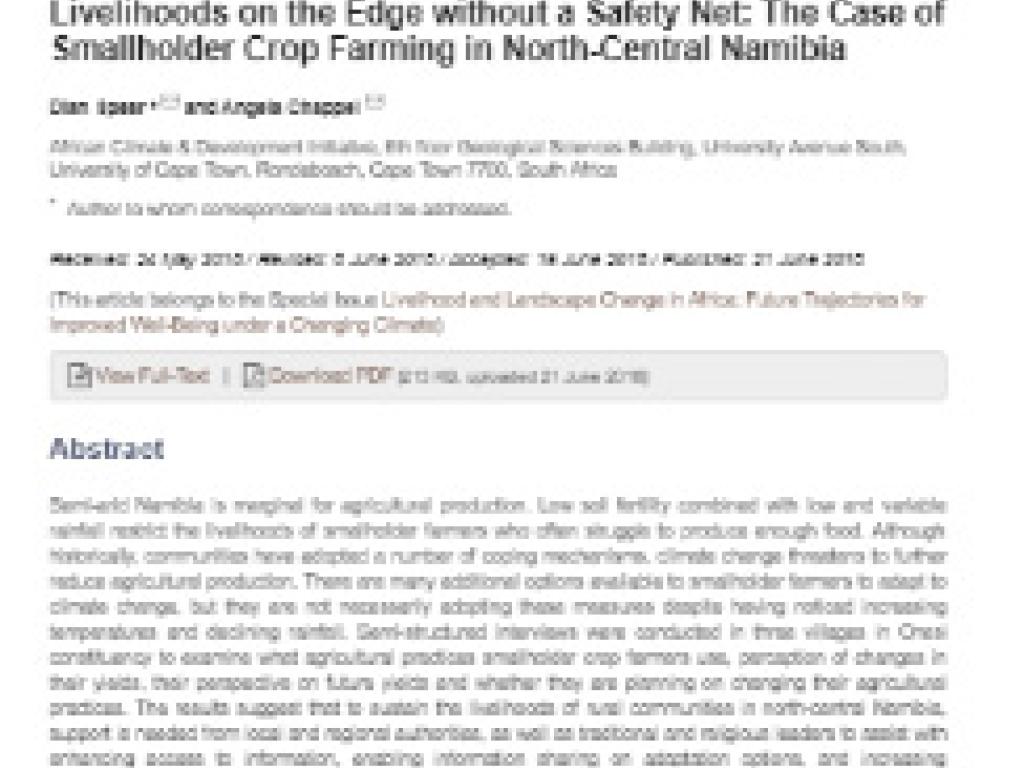Livelihoods on the Edge without a Safety Net: The Case of Smallholder Crop Farming in North-Central Namibia

Spear, D., Chappel, A. • 2017
Semi-arid Namibia is marginal for agricultural production. Low soil fertility combined with low and variable rainfall restrict the livelihoods of smallholder farmers who often struggle to produce enough food. Although historically, communities have adopted a number of coping mechanisms, climate change threatens to further reduce agricultural production. There are many additional options available to smallholder farmers to adapt to climate change, but they are not necessarily adopting these measures despite having noticed increasing temperatures and declining rainfall. Semi-structured interviews were conducted in three villages in Onesi constituency to examine what agricultural practices smallholder crop farmers use, perception of changes in their yields, their perspective on future yields and whether they are planning on changing their agricultural practices. The results suggest that to sustain the livelihoods of rural communities in north-central Namibia, support is needed from local and regional authorities, as well as traditional and religious leaders to assist with enhancing access to information, enabling information sharing on adaptation options, and increasing awareness on climate change, its impacts and what can be done about it. In addition to this, implementation of the adaptation action also requires demonstration sites and building capacity to enable the development of self-help groups.